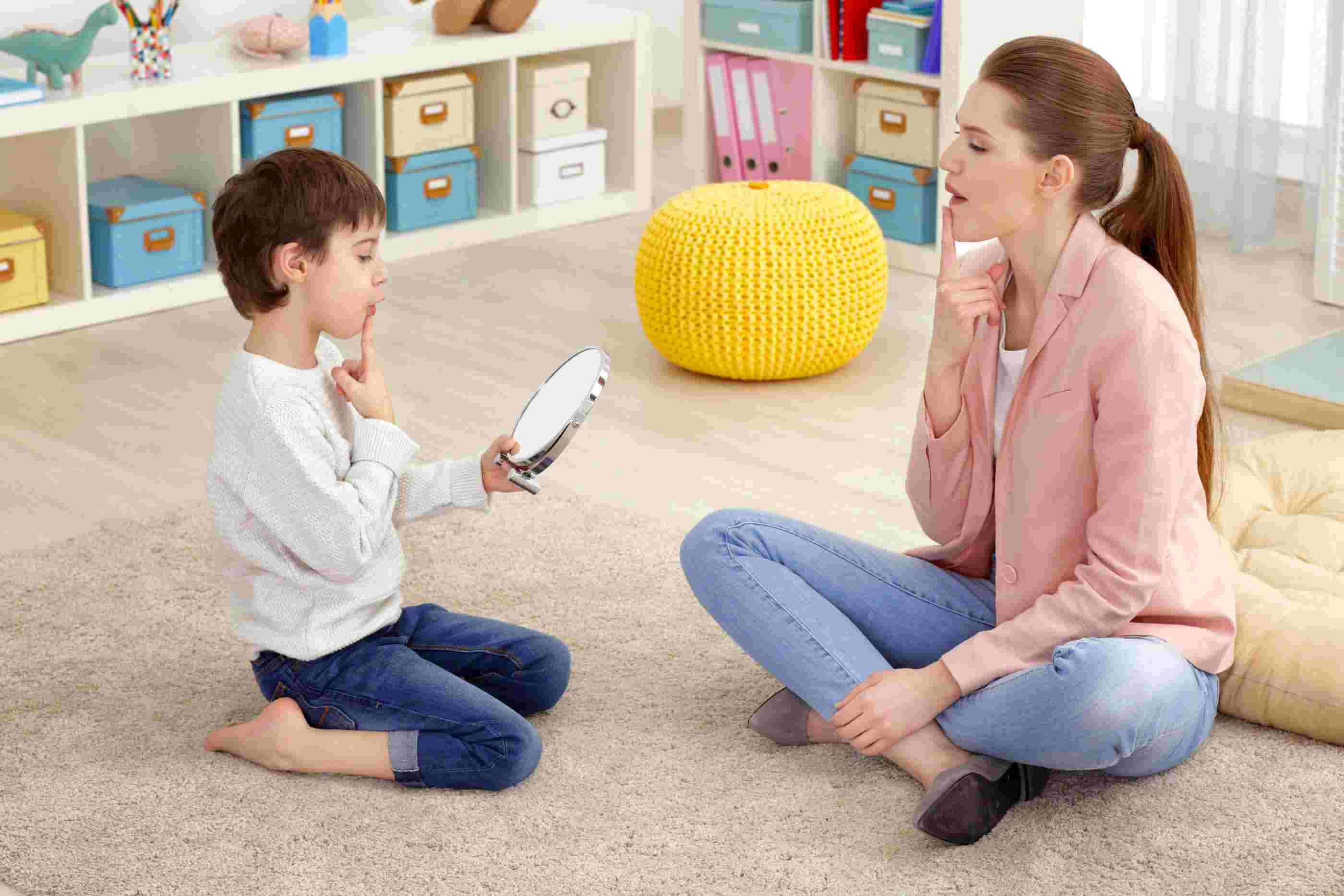Speech Therapy
Communication Development in Children with Language Delays
Language-learning can be a life-long journey, but the bulk of that journey takes place in our earliest years. In the first five years of life, when brain development is most rapid, children are more open to learning and more receptive to enriching experiences than they will ever be.
Studies have shown that during this critical period, children learn language by participating in back-and-forth interactions with the important adults in their lives. When a child sends a message, whether it be with a gesture, a sound, or a word, his parents' responses serve as helpful feedback that reinforce and encourage his learning. This responsive feedback is an essential ingredient in the language-learning process for every child.
If a child is communicating less than others his age, he is unlikely to receive as much of this essential feedback. Because he isn’t talking, adults naturally communicate with him less, so he doesn’t get the optimal, helpful input he needs to build his language skills.
When should you seek help?
We strongly recommend that you seek help from a speech-language professional if your child:
By 12 months
• doesn’t babble with changes in tone – e.g. dadadadadadadadada
• doesn’t use gestures like waving “bye bye” or shaking head for “no”
• doesn’t respond to her/his name
• doesn’t communicate in some way when s/he needs help with something
By 15 months
• doesn't understand and respond to words like "no" and "up"
• says no words
• doesn't point to objects or pictures when asked “Where’s the...?
• doesn’t point to things of interest as if to say “Look at that!” and then look right at you
By 18 months
• doesn’t understand simple commands like "Don't touch"
• isn’t using at least 20 single words like "Mommy" or "up"
• doesn’t respond with a word or gesture to a question such as “What’s that? or “Where’s your shoe?”
• can’t point to two or three major body parts such as head, nose, eyes, feet
By 24 months
• says fewer than 100 words
• isn’t consistently joining two words together like "Daddy go" or “ shoes on”
• doesn’t imitate actions or words
• doesn’t pretend with toys, such as feeding doll or making toy man drive toy car
By 30 months
• says fewer than 300 words
• isn’t using action words like “run”, “eat”, “fall” • isn’t using some adult grammar, such as “two babies” and “doggie sleeping” 3-4 years
• doesn’t ask questions
By 3 years
• isn’t using sentences (e.g., "I don't want that" or "My truck is broken") by three years
• isn’t able to tell a simple story by four or five years
If you’ve noticed one or more of these warning signs in your child, it’s important that you take action right away to ensure that he receives the help he needs.
Early identification of the disorders leads to early intervention and better long term prospects for the child.
Other most common disorder of speech are:
• Developmental Articulation Disorder
Inspite of normal development of language kids have unclear speech.They substitute one sound with another like/k/ becomes /t/ at all the places.Till 5 yrs of age acquires all the sound,if misarticulation persists even after that he needs intervention.
• Fluency Disorders
Stuttering is a communication disorder that results from an interaction between the child’s developing language skills and his or her developing motor skills. Developmentally it is normal for a child to go through a period of stuttering up to age 5. It becomes a concern when the stuttering is predictable and persistent across multiple settings.
Voice Disorders
Chronic voice disorders are fairly common in children. About 4-6 children out of every 100 have a voice disorder.
Children can have many types of voice disorders. Most of them are harmless and are caused by excessive shouting and loud talking, excessive use of certain harsh voice 'sound effects' during play, or they can be caused by common childhood infections. Your child's voice may sound harsh, hoarse or they may have 'lost' their voice entirely.
If you are concerned about your child's voice, please see your local doctor or contact us.

